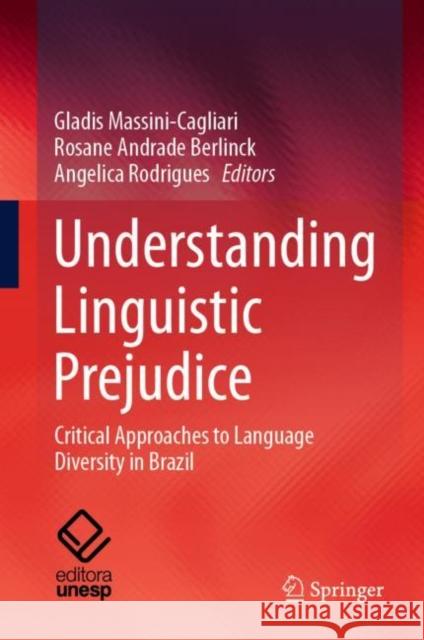Understanding Linguistic Prejudice: Critical Approaches to Language Diversity in Brazil » książka
Understanding Linguistic Prejudice: Critical Approaches to Language Diversity in Brazil
ISBN-13: 9783031258053 / Angielski
Understanding Linguistic Prejudice: Critical Approaches to Language Diversity in Brazil
ISBN-13: 9783031258053 / Angielski
(netto: 575,06 VAT: 5%)
Najniższa cena z 30 dni: 539,74
ok. 16-18 dni roboczych.
Darmowa dostawa!
This book discusses linguistic diversity, linguistic prejudice, and language variation and change from a Global South perspective by analyzing Brazilian Portuguese, Brazilian Sign Language (LIBRAS) and indigenous languages spoken in Brazil. It brings together studies and reflections on linguistic prejudice and social discrimination based on data and examples from Brazil and aims to bridge the gap between academic findings and popular notions related to linguistic diversity to promote language diversity and fight linguistic intolerance. Chapters in this volume present contributions to understand the origins and motivations of linguistic prejudice and foster awareness of entrenched opinions regarding linguistic diversity.The first part of the book brings together chapters analyzing basic sociolinguistic questions concerning linguistic prejudice based on theoretical discussions and qualitative research. The second part is composed of chapters that analyze linguistic prejudice in Brazil in major communities that speak Brazilian Portuguese varieties and minor communities that speak native and sign languages.Understanding Linguistic Prejudice: Critical Approaches to Language Diversity in Brazilwill be a valuable resource for researchers in sociolinguistics interested in language diversity, language justice and language policy. It will also be of interest to sociologists, anthropologists and other social scientist interested in the relationship between language, diversity, equity and inclusion.
This book discusses linguistic diversity, linguistic prejudice, and language variation and change from a Global South perspective by analyzing Brazilian Portuguese, Brazilian Sign Language (LIBRAS) and indigenous languages spoken in Brazil. It brings together studies and reflections on linguistic prejudice and social discrimination based on data and examples from Brazil and aims to bridge the gap between academic findings and popular notions related to linguistic diversity to promote language diversity and fight linguistic intolerance. Chapters in this volume present contributions to understand the origins and motivations of linguistic prejudice and foster awareness of entrenched opinions regarding linguistic diversity.The first part of the book brings together chapters analyzing basic sociolinguistic questions concerning linguistic prejudice based on theoretical discussions and qualitative research. The second part is composed of chapters that analyze linguistic prejudice in Brazil in major communities that speak Brazilian Portuguese varieties and minor communities that speak native and sign languages.Understanding Linguistic Prejudice: Critical Approaches to Language Diversity in Brazil will be a valuable resource for researchers in sociolinguistics interested in language diversity, language justice and language policy. It will also be of interest to sociologists, anthropologists and other social scientist interested in the relationship between language, diversity, equity and inclusion.











